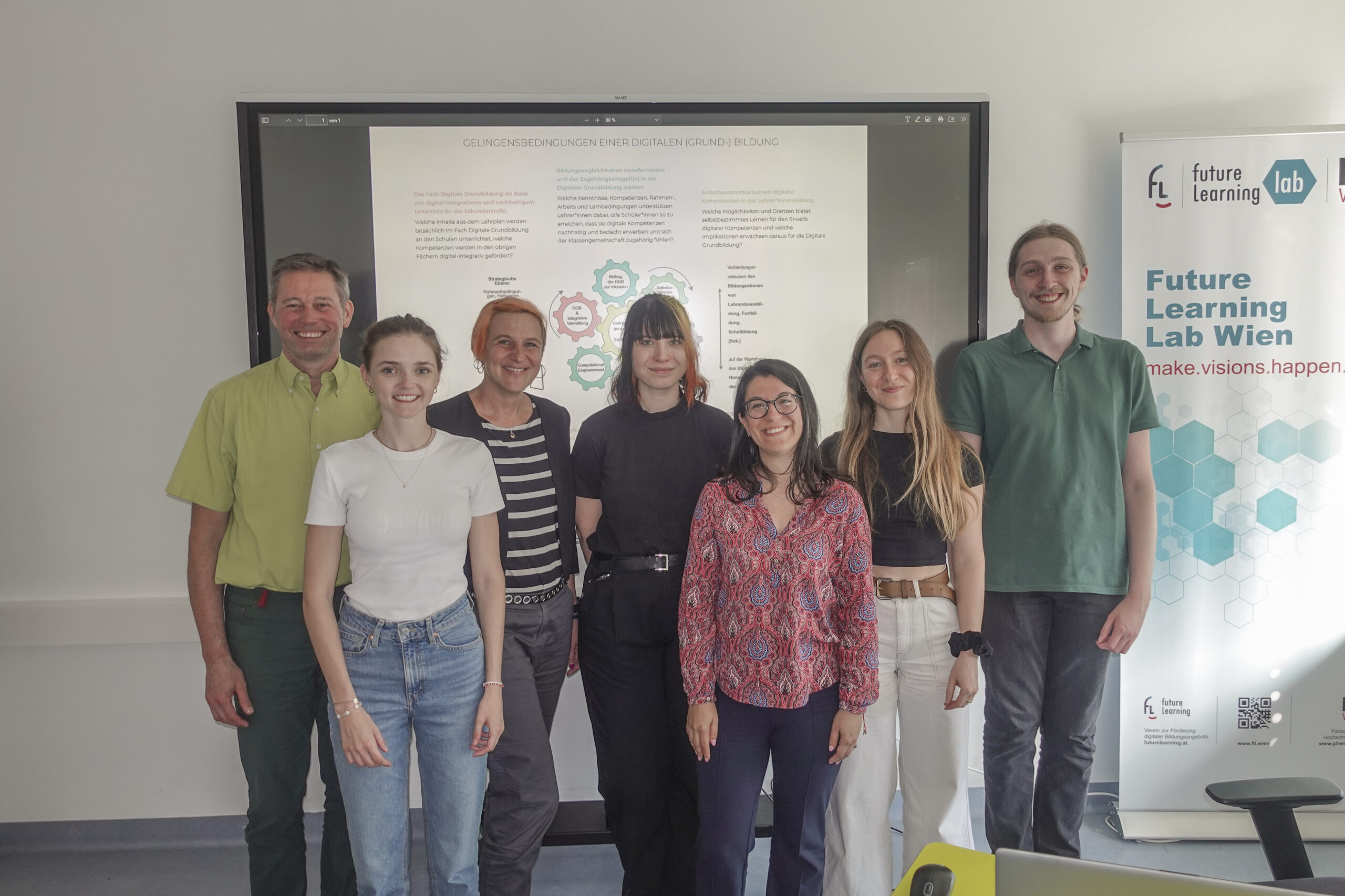The doctoral candidates took part in an international networking meeting organized by Klaus Himpsl-Gutermann and his team at the Competence Center for STEM and Digital Literacy (K:MID) at the PH Wien (University College of Teacher Education Vienna). There, they had the chance to meet Elena Gabbi from the University of Florence, who is part of an international consortium that investigates digital competences for teachers.
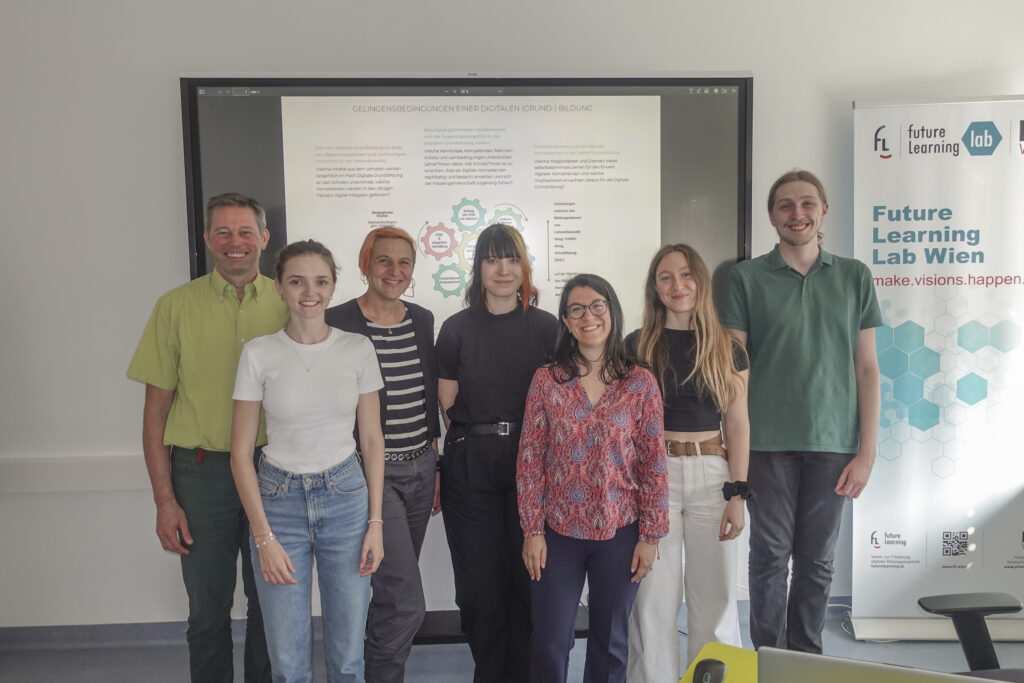
After a lunch, Elena Gabbi presented the D-PAIDEIA project, which deals with the expansion of the European framework for teachers’ digital competences, DigCompEdu, for the challenges of digital teaching based on a literature review and subsequent consultations. Main additions made by the team are social emotional competences and an awareness for institutional strategies as well as an update to fit the newer general competence model for digital skills, DigCommp2.2.
Following a discussion session, the doctoral candidates presented their own projects. Michael Jemetz reported on a recent investigation of teachers’ AI competence development which he carried out together with Renate Motschnig. The main findings they derived from a qualitative analysis of interviews with educators are that institutional support is needed but self-regulated learning plays a fundamental role in that field too.
Anne Elena Tiefenbacher presented her plan for her thesis project and gave an overview of the theoretical and organizational backgrounds of her field of research. She outlined the development of the subject Basic Digital Education in Austria and connected the process with Schulz-Zander’s five levels of school development.
Finally, Petra Weixelbraun and Selina Gartner presented their study on teachers’ notions of empowerment and belonging in the context of Basic Digital Education, which they investigated through a thematic analysis of interviews. Their main findings are that educators’ definitions of empowerment as well as challenges for equity in digital education are diverse. Their findings show that both empowerment and belonging are highly important for equal learning experiences.
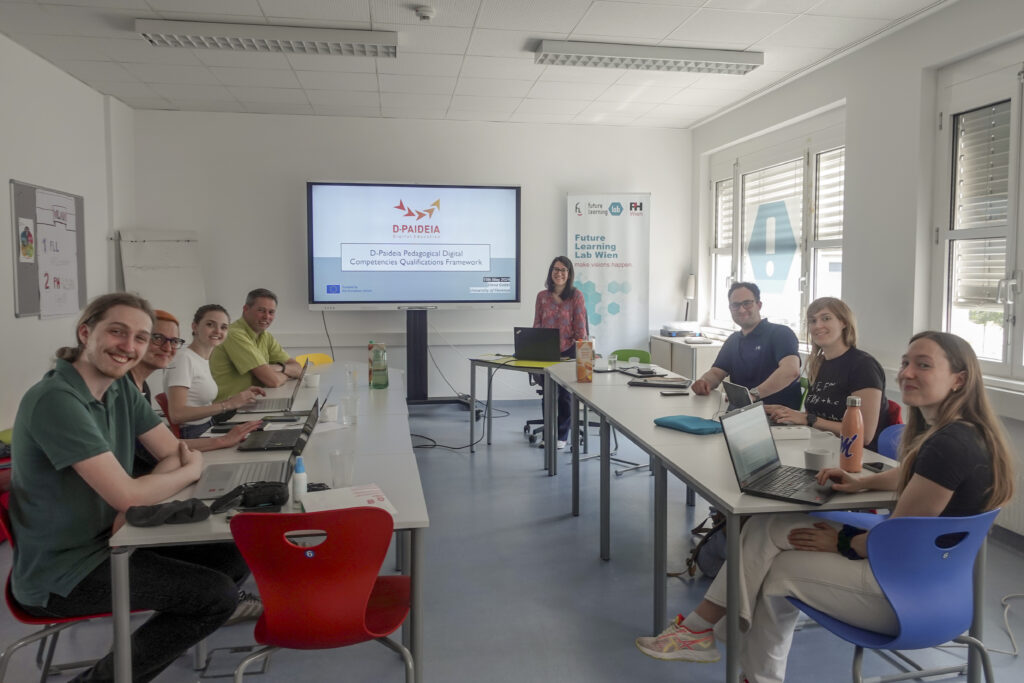
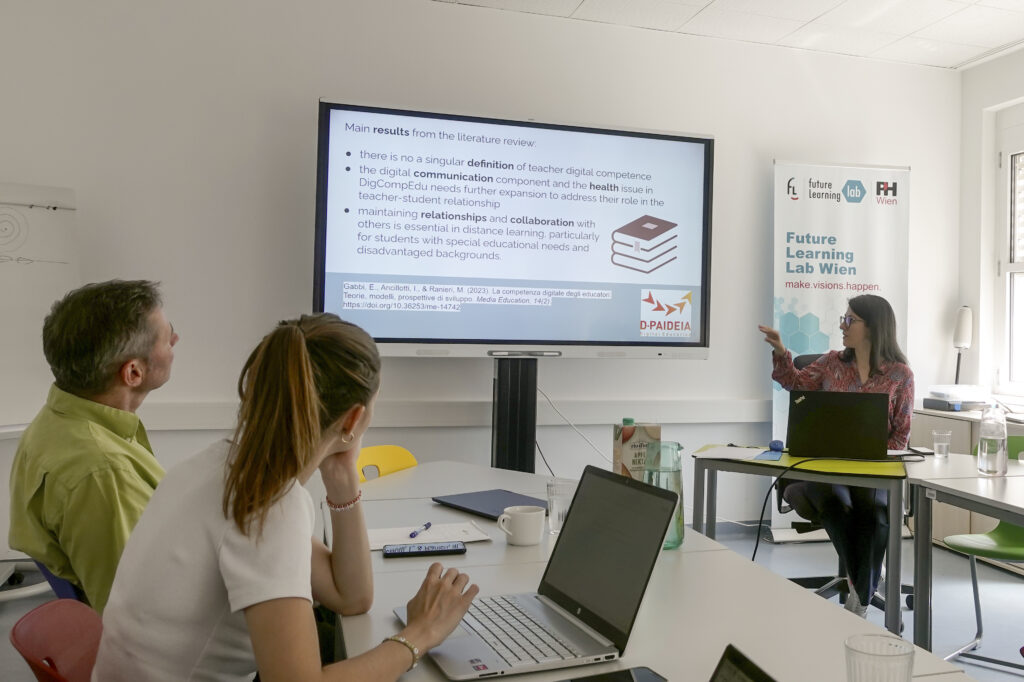
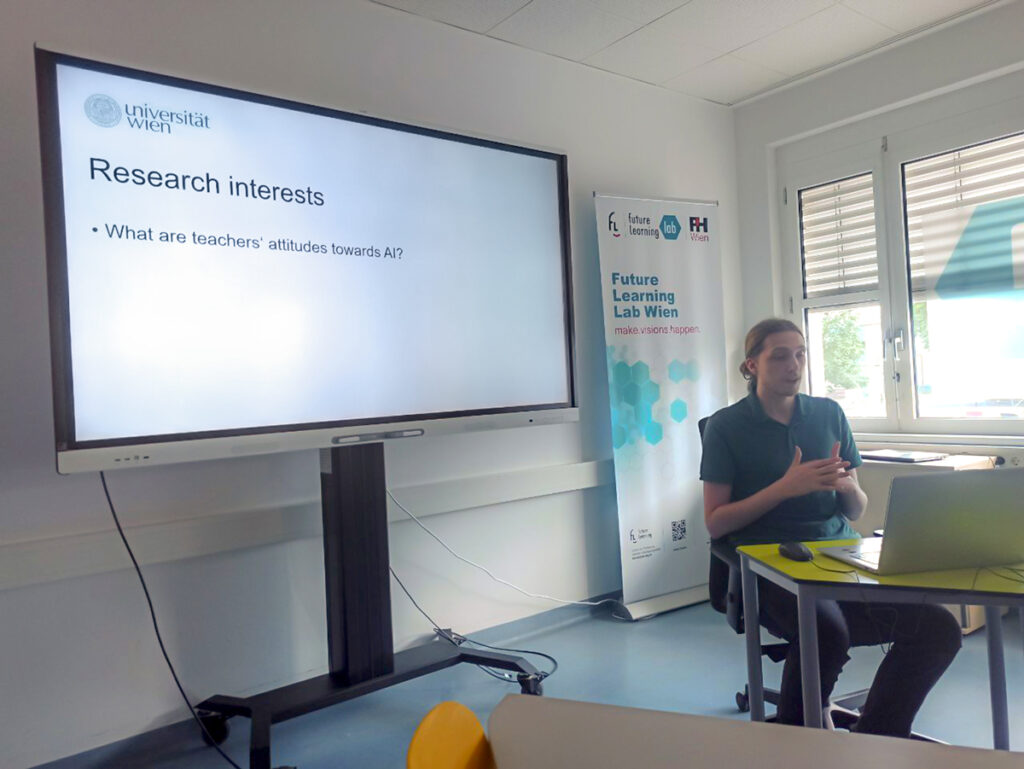
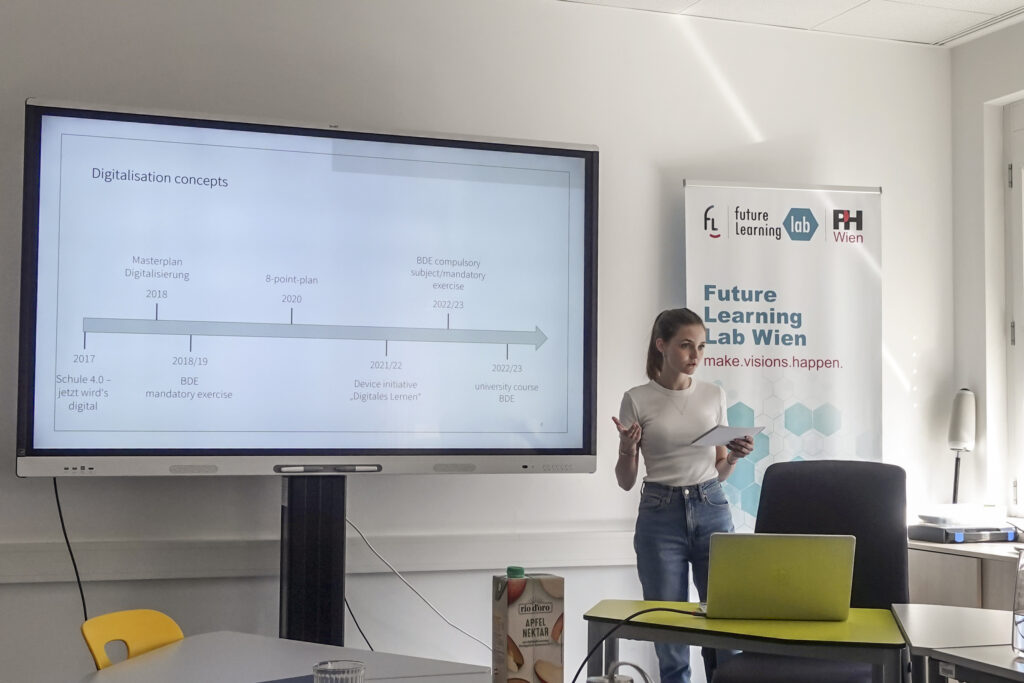
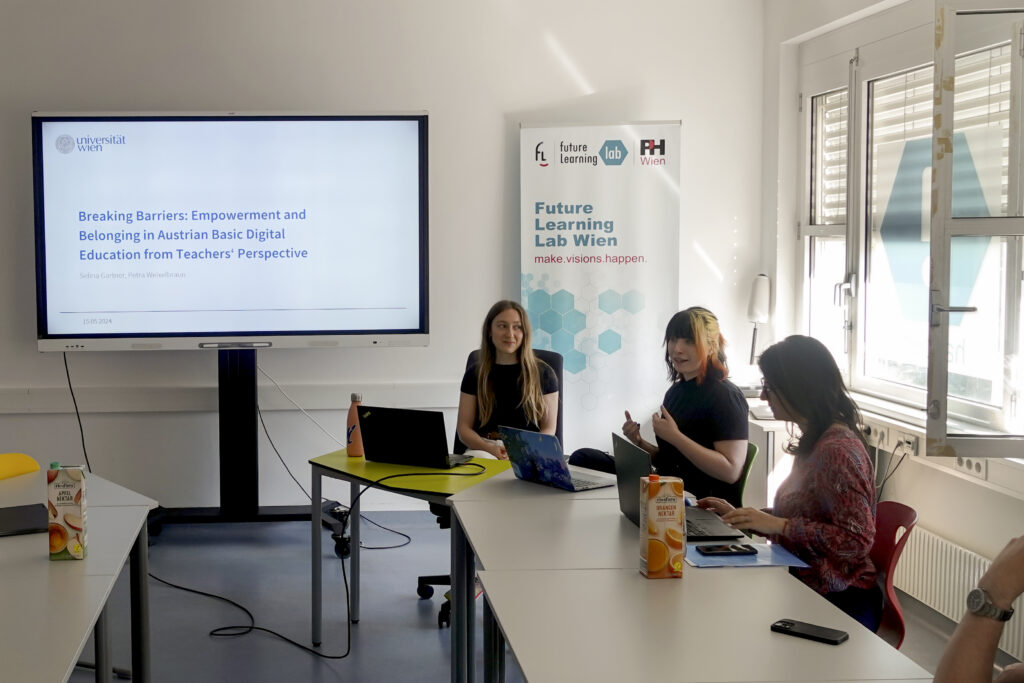
More on Elena Gabbi’s visit to Vienna:
Article on the K:MID website
Article on the PH Wien website
More on D-PAIDEIA:
D-PAIDEIA project website
More on the DigComp Framework:
DigComp2.2 on EU Science Hub
DigCompEdu on EU Science Hub

